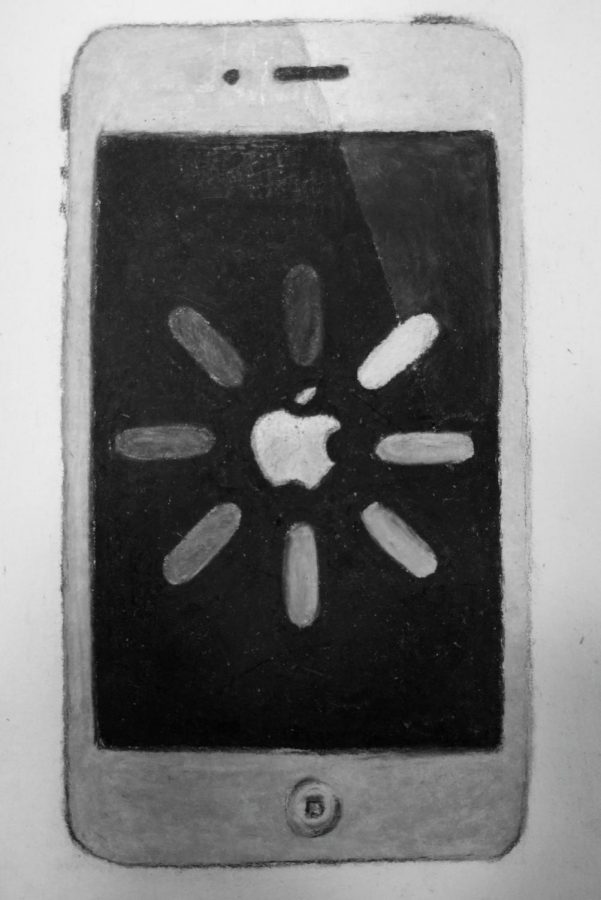Apple: Slowing Down iPhones to Maintain the Fruits of Its Labors
February 27, 2018
In late December of last year, Apple released a statement acknowledging that it slowed older iPhone models down during recent software updates, justifying this as a means of preserving battery life in its products. Unfortunately, many believe this to be a prime example of programmed obsolescence, a marketing scheme used by profiting companies in which older models are purposely devalued or placed in humiliating contrast to the newest (and often most expensive) product to entice consumers.
Despite Apple’s claim that this facet of software updates is meant to preserve the hardiness of the iPhone’s lithium-ion batteries, many experts note that the slower speed of the phones is due to the reorganization of commands within the hardware and software so as to adapt to the aging battery. Then, many ask, why use lithium-ion batteries? Their physical appeal outweighs, in the eyes of manufacturers, their volatile deterioration: lower weights and longer lifespans.
As an attempt to rectify its incongruence with the public’s beliefs, Apple has issued a formal apology statement and offered a battery placement for iPhone 6 models or newer for twenty-nine dollars (fifty dollars cheaper than the usual price of seventy-nine). They promise that the replacement will return the phone to its original performance. As it is extremely difficult to replace an iPhone battery without venturing to a store and asking for assistance, Apple wields extraordinary control in this situation; by offering a more affordable battery replacement, the company also ensures that other companies will not draw away marketing power from them. Indeed, Austin Segal ‘20, an iPhone user, notes that “I wasn’t aware of how severe this issue was. The widespread slowing down of iPhones could damage the productivity of many consumers.” Apple seems to be trying to cover up their mistakes quickly and move on — yet the public outrage over this recent altercation refuses to let that happen.
iPhone users have filed multiple lawsuits in response to this, claiming that if the issue had been made public earlier, they would have bought battery replacements rather than contributing to the electronic waste crisis by purchasing a new phone. Government authorities have also risen up against Apple, and over thirty lawsuits have been filed in the United States. In South Korea, an advocacy group called Citizens United for Consumer Sovereignty filed a criminal lawsuit alleging destruction of property, amongst other accusations. France’s government has a law that specifically outlaws programmed obsolescence, citing environmental concerns. However Apple chooses to tackle its situation, it is clear that extensive measures will need to be taken to regain the trust of its consumer base.



